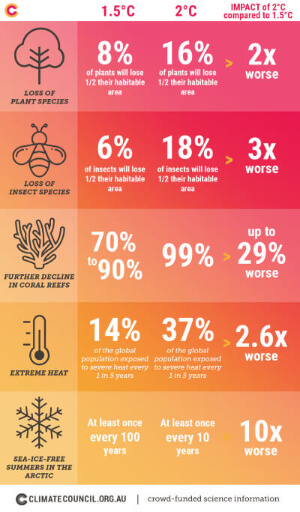

Insights How can the construction industry deliver on COP26 commitments?
The 2021 United Nations Climate Change Conference, or COP26 as it is widely known, took place between 31 October and 12 November 2021. Leaders from around the world came together in the UK to accelerate action towards achieving the goals of the 2015 Paris Agreement and the UN Framework Convention on Climate Change (UNFCCC).
At AtkinsRéalis, our sustainability objectives are aligned with these goals. We recently announced renewed targets for climate action throughout our global business.
By joining the UNFCCC’s Race to Zero global campaign and signing the Business Ambition for 1.5°C commitment, we are demonstrating our purpose to engineer a better future for our planet and generations to come. So how can we come together as an industry to deliver on the commitments outlined at COP26?
The current state of affairs
It is widely acknowledged that we are racing against time to lessen or prevent, the disastrous implications that the rising climate will have on the world.
Scientists have been warning for many years that if temperatures rise by 2 degrees, the impact will be devastating and could trigger a domino effect for climate change.
Rising temperatures pose irreversible risks to people, wildlife, and our environment, as demonstrated in the below infographic from the Australian Climate Council.
Image: Australian Climate Council
Countries, businesses, and people therefore all have a social responsibility to make progress in ensuring sustainability initiatives are achieved. The current aims, agreed after the Paris Agreement, are to ensure that the climate, which will unquestionably rise, will not exceed 1.5 degrees Celsius.
This goal is, according to Myles Allen, Professor of Geosystem Science at the University of Oxford, ‘physically, technically, and economically possible’ but only with collaborative efforts.
Global pledges made at COP26
Several pledges were made at COP26, but on a global scale, the following has been agreed upon:
- To halt and reverse deforestation and land degradation by 2030
- To cut methane emissions by 30% by 2030
- To end public financing of overseas oil, gas, and coal projects by December 2022
- To decarbonise South Africa’s coal-intense energy system
- To phase out and not build or invest in new coal power over the coming years
The Glasgow Climate Pact is the first international agreement to explicitly plan to reduce the use of coal. Critics say that this pledge doesn’t go far enough and that leaders should have pushed to eliminate the most carbon-emitting fossil fuel altogether. Whilst this may be true, the Pact is still a huge step forward in the right direction.
How can the construction industry deliver on these commitments?
The initiative to phase out coal is a significant outcome for the construction industry. By installing infrastructure networks for low carbon vehicles, investing in renewable energy, offsetting emissions, and improving low carbon public transport options, our industry can play a huge part in tackling climate change.
The acceleration of carbon trading was a significant issue for the construction industry considered at COP26. The new agreement will drive demand for low-carbon materials and enable a more centralised carbon trading system.
A credit system will be introduced between nations which will attract high volumes of investment into carbon reduction schemes such as Carbon Capture, Use, and Storage (CCUS) and afforestation.
AtkinsRéalis’s commitment to Net Zero Carbon
At AtkinsRéalis , we know that there's no planet B, that's why we have taken significant steps on our sustainability journey in 2021. As signatories to the United Nations Global Compact, we have set high-level goals, including pledging to become Net Zero Carbon by 2030. As part of the Race to Zero, over the coming years we will:
- streamline our real estate portfolio to minimise the carbon footprint of buildings and facilities,
- adopt digital communication tools to reduce business travel and initiate behavioural change to lower energy usage,
- design buildings and infrastructure that are energy efficient through their life cycle in collaboration with clients
Upon signing the climate pledge, we have agreed to measure and report greenhouse gas emissions regularly, to implement decarbonisation strategies through real business changes, renewable energy, and other carbon emission elimination strategies, and finally to neutralise any remaining emissions by offsetting carbon.
Join us at AtkinsRéalis as we accelerate towards Net Zero Carbon
We launched our Vision for Engineering a Sustainable Society with enhanced Environmental, Social, and Governance (ESG) targets, including a Routemap to achieve Net Zero Carbon emissions by 2030. To achieve this, however, we are looking for more innovative professionals to join our growing engineering, project management, architectural and commercial teams.
If you are looking for a new, exciting career path that can genuinely help engineer a better future for our planet and its people, we may have an opportunity for you. Browse our available engineering roles today, the planet won’t wait.
Interested? Find out more about life at AtkinsRéalis
Sign up to receive the latest content tailored to your interests
Our articles

Preview
Middle EastContent type
BlogsPublish date
04/26/2024
Summary
By implementing reforms in the public sector and wider society, the KSA’s Vision 2030 has greatly improved government efficiency, bringing about new growth and investment opportunities. What is Visio
.jpg)
Preview
IndiaContent type
BlogsPublish date
04/25/2024
Summary
In the ever-evolving landscape of professional endeavours, finding a workplace that feels like your safe space is a rare gem. AtkinsRealis stands as a beacon in this regard, where talents not only
.jpg)
Preview
IndiaContent type
BlogsPublish date
04/25/2024
Summary
In the ever-evolving landscape of urban drainage modelling, AtkinsRéalis stands as the leaders with large highly skilled urban drainage modellers. Our focus on serving our clients around urban dra

Preview
CanadaContent type
BlogsPublish date
04/25/2024
Summary
Since the start of the COVID-19 pandemic, the skill of managing constantly changing environments has become more and more important. New construction project management software offers innovativ
+(1).jpg)
Preview
AustraliaContent type
BlogsPublish date
04/24/2024
Summary
In a momentous shift, SNC-Lavalin has transitioned to AtkinsRéalis, marking a new era of innovation, collaboration, and excellence in engineering consultancy. With this rebrand comes a fresh persp
.jpg)
Preview
IndiaContent type
BlogsPublish date
04/23/2024
Summary
As Mumbai continues to evolve and expand, the demand for sustainable infrastructure and cutting-edge technology has never been more pressing. At the forefront of this transformative journey is Atk

Preview
EuropeContent type
BlogsPublish date
04/22/2024
Summary
Hi there! I'm Paul, a civil engineer with over 25 years of experience specializing in networks and drainage engineering. My role at AtkinsRéalis spans managing projects, directing major initia

by
Shailaja Mantha

Preview
EuropeContent type
BlogsPublish date
04/22/2024
Summary
Meet Paul, a talented civil engineer in water management whose career journey is as inspiring as impressive. Starting at AtkinsRéalis, fresh out of university in 1997, Paul quickly distinguish

by
Shailaja Mantha

Preview
Middle EastContent type
BlogsPublish date
04/18/2024
Summary
In the vast expanse of the Saudi Arabian landscape, you’ll find a beacon of innovation, a vision for a better, greener tomorrow. NEOM sits in the heart of the Tabuk province and isn’t just anothe

Preview
AsiaContent type
BlogsPublish date
04/18/2024
Summary
As a global metropolis, Hong Kong has long been a fantastic place to be a civil engineer. With world-class infrastructure all around, effective civil engineers have many opportunities to be a
.jpg)
Preview
AustraliaContent type
BlogsPublish date
04/18/2024
Summary
In January 2024, Srijana embarked on a new chapter in her engineering career, joining AtkinsRealis as a Chartered Structural Engineer. With six years of experience on a wide variety of projects, Sr

Preview
EuropeContent type
BlogsPublish date
04/17/2024
Summary
I'm Dean, Regional Director at AtkinsRéalis since July 2023. I'm a Chartered Quantity Surveyor in the Projects & Programme Services team with director-level experience across various sectors,

by
Shailaja Mantha

AtkinsRéalis
Equality, diversity and inclusion
We’re devoted to growing the diversity of our people, promoting an inclusive culture, providing everyone with an equal voice because simply put, it’s the right thing to do. Click to learn more.
Find out more




